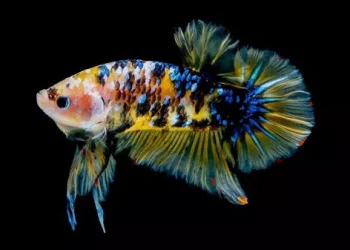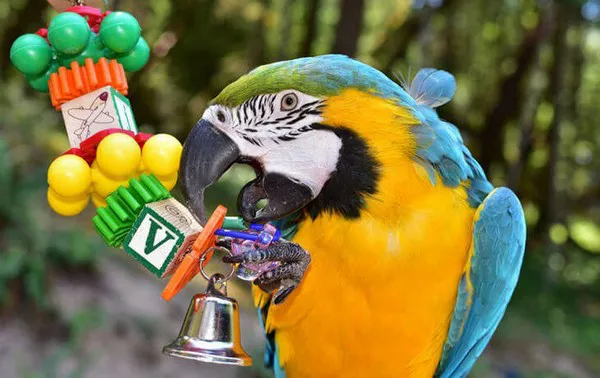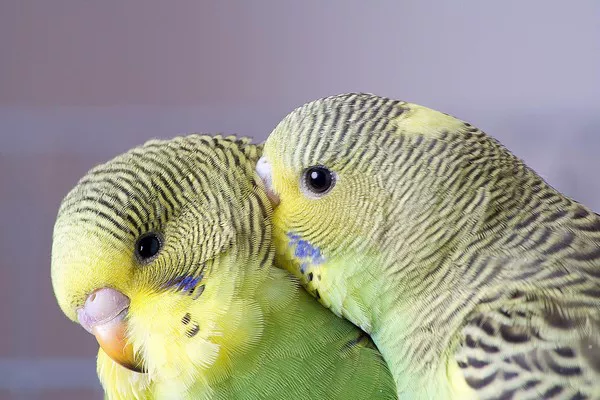Angora rabbits, known for their long, luxurious fur, are a distinct breed of rabbit with specific dietary needs. These bunnies require a carefully balanced diet to keep them healthy, happy, and comfortable. Like all rabbits, they need the right amount of fiber, vitamins, and minerals to thrive, but their special grooming needs due to their thick coat mean that their nutrition must be managed even more carefully. This article will cover what to feed Angora rabbits, what foods to avoid, and how to ensure they stay in optimal health throughout their lives.
Introduction to Angora Rabbits
Angora rabbits are a breed that originates from Turkey, prized for their incredibly soft and fluffy wool. Over the years, breeders have created several varieties of Angora rabbits, each with their own specific traits, but all have one thing in common—their stunning, thick fur. Angora wool is one of the finest types of wool, used in clothing, yarn, and other textiles. However, with all that fur comes the need for frequent grooming, and this also affects their dietary needs.
Angora rabbits are generally docile and gentle creatures, making them excellent pets. They enjoy companionship and need attention from their owners. However, their special care requirements, particularly around diet and grooming, make them a bit more demanding than other rabbit breeds. Let’s dive deeper into understanding what to feed an Angora rabbit, the importance of fiber in their diet, and the types of foods that support their health.
Understanding Rabbit Nutrition
Before focusing specifically on Angora rabbits, it’s helpful to first understand what rabbits need in terms of nutrition. Rabbits are herbivores, meaning their diet consists entirely of plant material. Their digestive system is unique and specifically designed for processing high-fiber foods, which is why hay is such an essential component of their diet.
Rabbits have a large cecum, which is a part of their digestive system where most of the fermentation and breakdown of fiber happens. For this system to function properly, rabbits need a diet rich in fiber. Without enough fiber, a rabbit’s digestion will slow down, leading to serious health problems like obesity, gastrointestinal stasis (a dangerous condition where the digestive system shuts down), and dental issues.
Key Components of an Angora Rabbit’s Diet
Angora rabbits require a balanced diet that includes several key components. These components will support their general health, maintain their weight, and also keep their coats in optimal condition.
1. Hay: The Foundation of Their Diet
Hay is the most important component of any rabbit’s diet, and this is especially true for Angora rabbits. The high fiber content of hay helps keep their digestive system running smoothly and ensures they don’t become overweight. For Angora rabbits, hay also provides the roughage needed to prevent hairballs, which can be an issue due to their long fur.
Types of Hay for Angora Rabbits:
Timothy Hay: This is the most commonly recommended hay for rabbits. It comes in different cuts (1st, 2nd, and 3rd), with first-cut hay being the most fibrous and lowest in calories, making it perfect for adult rabbits. Second and third cuts are softer and sweeter but should still be included in their diet in moderation to provide variety.
Meadow Hay: If you can find it, meadow hay is another great option for Angora rabbits. It’s a mixture of grasses and plants that are high in fiber and offer a diverse range of textures and flavors.
Orchard Grass Hay: Slightly sweeter than Timothy hay, orchard grass hay is a great choice for picky eaters. It provides a similar fiber content and is gentle on the digestive system.
Oat Hay: A good option, especially if you want to give your rabbit some variety. It’s harvested while the oats are still green and high in fiber, but it’s lower in protein and calcium, which makes it safe for long-term consumption.
Feeding Tips for Hay:
- Provide unlimited amounts of hay to your Angora rabbit every day.
- Offer hay in different locations in their enclosure to encourage natural foraging behavior.
- Ensure the hay is fresh, dry, and free from mold or contaminants.
- Avoid hay that has been heavily processed or that has artificial additives.
2. Fresh Vegetables
In addition to hay, Angora rabbits should be fed a variety of fresh vegetables to provide essential vitamins and minerals. Vegetables are also a great source of moisture to help keep them hydrated.
Recommended Vegetables for Angora Rabbits:
Leafy Greens: Romaine lettuce, kale, parsley, cilantro, and dandelion greens are excellent choices for Angora rabbits. These provide a rich source of fiber, calcium, and other nutrients.
Carrots: While carrots are known for being high in sugar, they are also rich in vitamins. Limit them to a few baby carrots or small pieces per day to avoid excess sugar intake.
Bell Peppers: High in vitamin C, bell peppers are a great addition to your rabbit’s diet.
Basil and Mint: These herbs are flavorful and provide antioxidants. They also have a calming effect on the digestive system.
Broccoli: A good source of vitamin C and fiber, but be sure to feed it in moderation as it can cause gas or bloating in some rabbits.
Feeding Tips for Vegetables:
- Introduce new vegetables gradually to avoid upsetting their digestive system.
- Avoid feeding them iceberg lettuce as it has minimal nutritional value and may cause digestive issues.
- Always wash vegetables thoroughly to remove pesticides and other contaminants.
- Only offer vegetables that are safe for rabbits, as some foods can be toxic to them (e.g., onions, garlic, and certain seeds).
3. Pellets: A Supplemental Food
Rabbit pellets are an optional supplement to an Angora rabbit’s diet, but they should not be the main source of nutrition. Good-quality rabbit pellets contain a balanced mix of fiber, protein, and other nutrients, but it’s crucial that the pellets are high in fiber (at least 18%) and low in protein and calcium.
Choosing the Right Pellets:
- Choose timothy hay-based pellets rather than alfalfa-based pellets, which are too high in calcium for adult rabbits.
- Avoid pellets that contain seeds, dried fruit, or artificial additives, as these can contribute to obesity and other health issues.
- Ensure that the pellets are fresh and stored in a cool, dry place to prevent them from becoming stale or contaminated.
Feeding Tips for Pellets:
- Limit pellets to about 1/4 cup per 5 pounds of body weight per day.
- Use pellets as a supplement to hay and vegetables, not as a substitute.
- Always measure the pellets to avoid overfeeding.
4. Fresh Fruits: A Treat in Moderation
Fruits are high in sugar and should only be given to Angora rabbits as an occasional treat. Too much fruit can lead to digestive issues or weight gain. However, when given in moderation, fruits provide a good source of vitamins, particularly vitamin C.
Recommended Fruits for Angora Rabbits:
Apples (without seeds): Apples are high in fiber and vitamin C, but only offer small slices.
Berries: Strawberries, raspberries, and blueberries are great choices for occasional treats.
Pineapple: This tropical fruit is high in vitamin C and also contains enzymes that can help with digestion.
Feeding Tips for Fruits:
- Offer fruit in small amounts, about 1-2 tablespoons per day.
- Remove any seeds or pits from fruit before giving it to your rabbit.
- Never feed them dried fruit, as it is too concentrated in sugar.
5. Water: Essential for Hydration
Water is an essential component of your Angora rabbit’s diet. Fresh water should always be available, as hydration is key for maintaining healthy digestion and preventing urinary tract issues. Provide water in a heavy ceramic bowl or a water bottle to avoid spills and contamination.
Feeding Tips for Water:
- Change the water daily to keep it fresh.
- Ensure the water is clean and free from any debris.
- If your rabbit uses a water bottle, check that it is functioning properly to avoid dehydration.
Special Considerations for Angora Rabbits
Angora rabbits are known for their thick, long fur, which requires regular grooming. Because of this, they are particularly prone to hairballs, which can lead to serious gastrointestinal problems if not addressed. A high-fiber diet, along with regular grooming, is essential for managing hairballs.
Fiber: A fiber-rich diet helps prevent hairballs by supporting healthy digestion and the natural passage of fur through the digestive tract.
Grooming: Brush your Angora rabbit regularly (at least a few times a week) to remove loose hair and prevent matting. This will also reduce the likelihood of them ingesting too much hair while grooming themselves.
Hay: Ensure that hay is a consistent part of their diet to help keep their digestive system moving and prevent blockages caused by hairballs.
Foods to Avoid
While there are many healthy options for Angora rabbits, there are also foods you should avoid feeding them. These include:
Lettuce (Iceberg or Romaine in excess): Iceberg lettuce has little nutritional value, and feeding large amounts of lettuce can lead to diarrhea.
Potatoes: Potatoes are starchy and can cause digestive upset in rabbits.
Onions and Garlic: These are toxic to rabbits and should never be fed to them.
Nuts and Seeds: These are high in fat and can lead to obesity or digestive issues.
Chocolate and Sugary Treats: Chocolate is toxic to rabbits, and sugary foods can contribute to obesity and dental issues.
Conclusion
Feeding Angora rabbits the right diet is essential for their health and well-being. The foundation of their diet should be unlimited hay, supplemented with fresh vegetables, occasional fruits, and a small amount of high-quality rabbit pellets. Proper hydration and regular grooming are also critical, especially for Angora rabbits, due to their dense fur. By providing them with a balanced diet and taking care of their grooming needs, you can ensure that your Angora rabbit lives a happy, healthy life.
Related Topics:




















